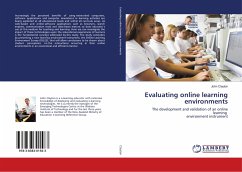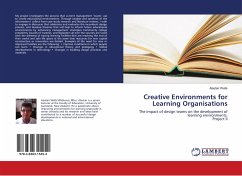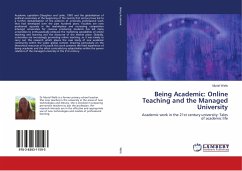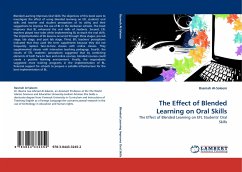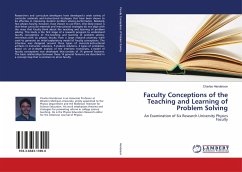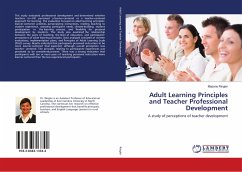Increasingly the perceived benefits of using networked computers, software applications and computer simulations in learning activities are being exploited at all educational levels and within all curricula areas. As web-based and online software applications such as browsers, search engines, communication tools and data-bases mature, so does educator's use of this medium for teaching and learning. How we can investigate the impact of these technologies upon the educational experiences of learners is the fundamental concept addressed by this study. The study concludes by presenting a new learning environment instrument, the Online Learning Environment Survey (OLLES), that will allow conclusions to be drawn about student perceptions on the interactions occurring in their online environments in an economical and efficient manner.
Bitte wählen Sie Ihr Anliegen aus.
Rechnungen
Retourenschein anfordern
Bestellstatus
Storno

